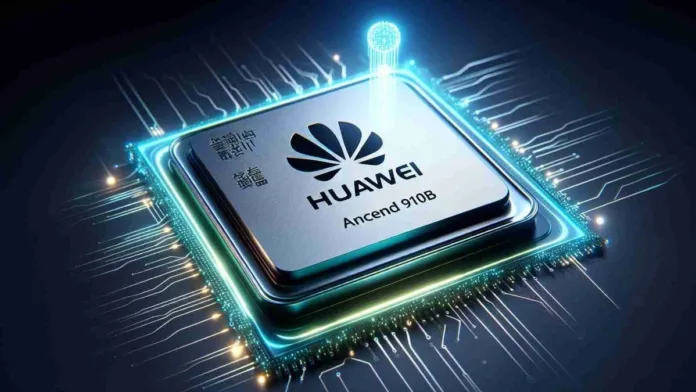In a bold and strategic move that could significantly shift the global AI landscape, Huawei has developed a new AI processor designed to compete directly with industry leader Nvidia. This announcement places Huawei at the forefront of the Huawei AI processor revolution and signals China’s growing ambition to lead in high-performance AI hardware development.
The launch of this new chip arrives at a critical moment when global demand for artificial intelligence capabilities is soaring, and geopolitical pressures are redefining the boundaries of technological innovation. By introducing this cutting-edge processor, Huawei is not only responding to increasing domestic demand but also aiming to challenge U.S.-based dominance in the AI chip market.
Huawei’s Strategic Leap into AI Hardware
Huawei’s history in telecommunications and mobile technologies has long been robust, but this latest advancement represents a deeper dive into high-performance computing. The newly introduced Huawei AI processor reportedly offers competitive capabilities for machine learning workloads, large language models, and real-time inference tasks—areas where Nvidia’s GPUs currently dominate.
The processor, rumored to be part of Huawei’s Ascend series, integrates advanced architectural designs and energy-efficient performance benchmarks. The goal is clear: reduce dependency on foreign chip suppliers and establish a self-reliant, AI-empowered ecosystem within China.
The Rise of China in the AI Chip Race
This development also speaks to the broader picture of Chinese tech advancements in response to U.S. sanctions and global chip shortages. With access to Nvidia’s high-end GPUs increasingly restricted due to trade regulations, Huawei’s entry into the AI hardware development space is both timely and symbolic of national resilience.
Chinese companies, backed by strong government support, are accelerating their efforts to develop homegrown semiconductor technologies. Huawei’s new processor marks a critical milestone in these efforts and represents a shift toward innovation over imitation in the global tech space.
Competing with Nvidia: Can Huawei Keep Up?
While Huawei’s ambitions are clear, the competition is steep. Nvidia has years of experience and a well-established software ecosystem, particularly with its CUDA platform that dominates deep learning applications. To match or surpass Nvidia, Huawei will need to invest not just in hardware but also in supporting tools, developer frameworks, and AI research collaborations.
However, analysts suggest that Huawei could find an advantage in targeting specific use cases like data centers, AI surveillance systems, and national cloud infrastructure where domestic clients might prefer Chinese-made solutions for strategic and economic reasons. As restrictions on Nvidia tighten, Huawei is likely to gain traction within China’s booming AI demand sectors.
Market Impact and Future Outlook
Huawei’s announcement has already sparked discussions in global markets. Investors, developers, and policy analysts are closely watching how this move will affect Nvidia’s market dominance and whether it will trigger a wave of semiconductor innovation from other tech giants looking to lessen reliance on U.S. suppliers.
If Huawei continues to iterate and improve on this foundation, the AI chip market may see a paradigm shift—one that decentralizes power from traditional players and encourages a more diverse global ecosystem of AI hardware providers.
Huawei is also expected to ramp up production and refine its chip fabrication processes, possibly in collaboration with China’s semiconductor manufacturers like SMIC. While catching up with Nvidia’s performance levels is a challenging journey, Huawei’s aggressive approach signals that the company is in it for the long haul.
Conclusion
The development of the Huawei AI processor is more than just a technical achievement—it’s a statement of intent. As the race for AI supremacy intensifies, Huawei is emerging as a formidable contender willing to take bold steps to redefine what’s possible in AI chip technology.
Whether Huawei’s efforts will translate into real-world dominance remains to be seen, but what’s certain is that the global AI landscape is undergoing a transformation. With its new processor, Huawei is not just competing with Nvidia—it’s shaping the future of AI innovation.
